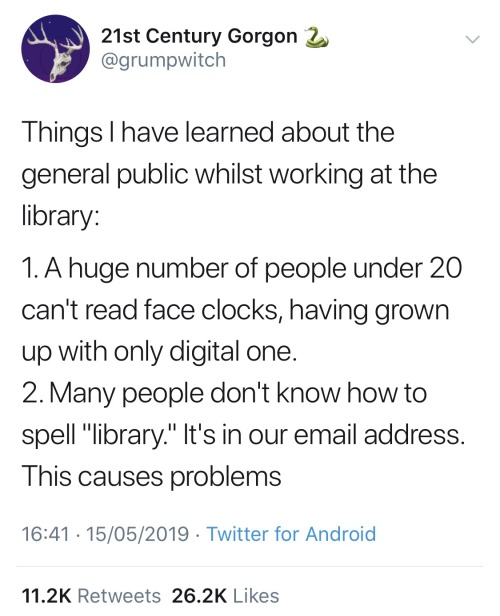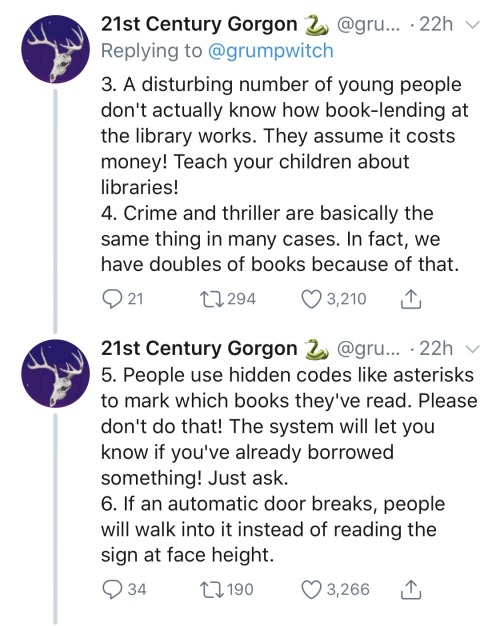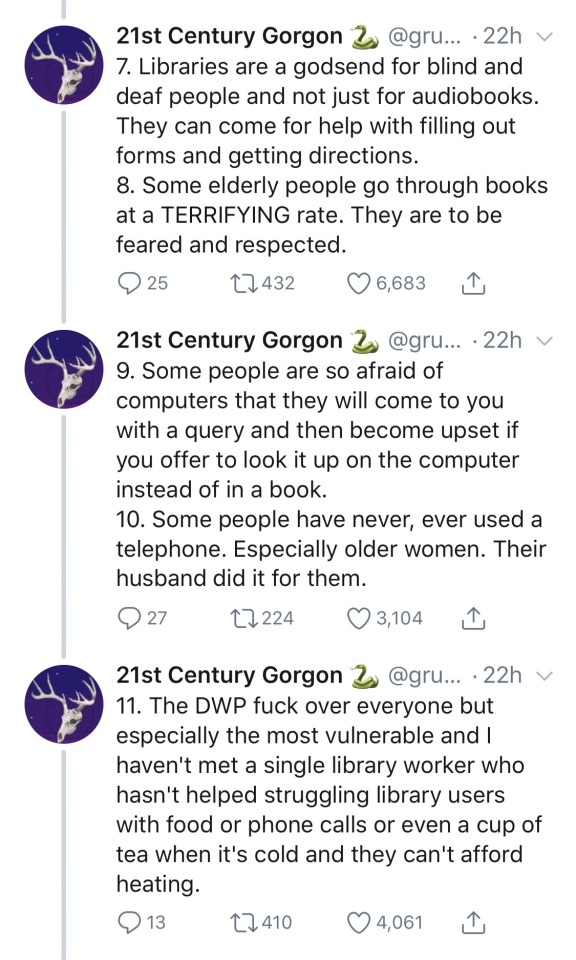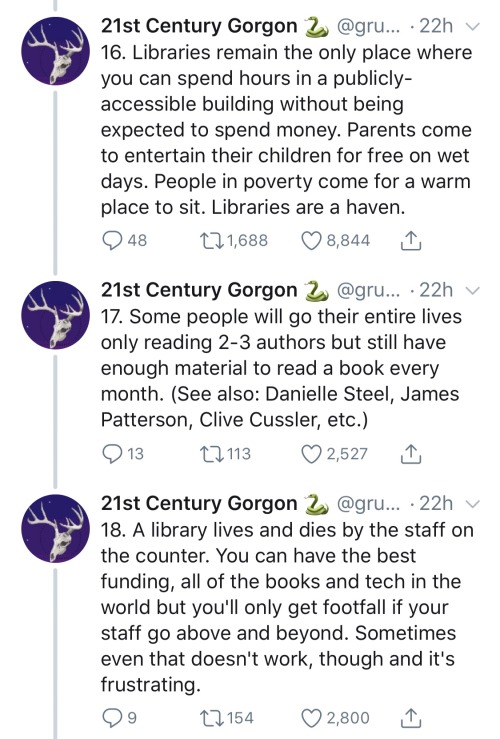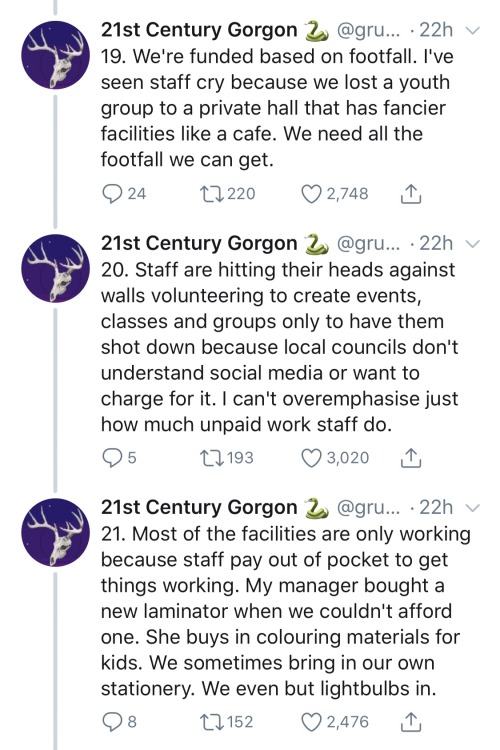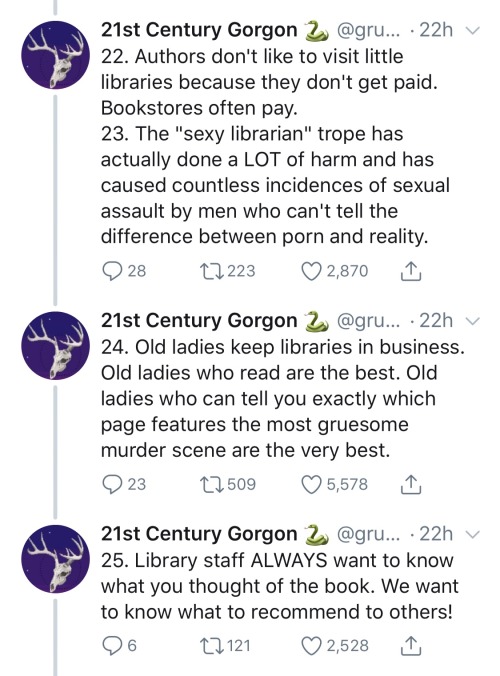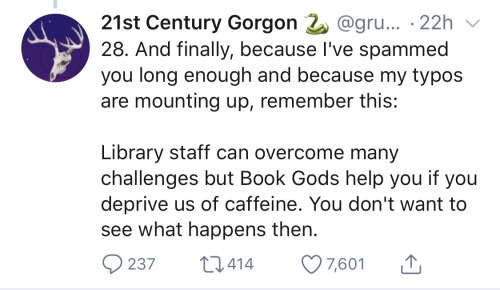‘We Wanted Our Patrons Back’ — Public Libraries Scrap Late Fines To Alleviate Inequity

For nearly a decade, Diana Ramirez hadn’t been able to take a book home from the San Diego Public Library. Her borrowing privileges were suspended, she was told, because of a mere $10 in late fees, an amount that had grown to $30 over the years.
Ramirez, who is now 23 and stays in Tijuana with her mother, attends an alternative education program in San Diego that helps students earn high school diplomas. To her, the debt she owed to the library system was an onerous sum. Even worse, it removed a critical resource from her life.
“I felt disappointed in myself because I wasn’t able to check out books,” Ramirez said. “I wasn’t able to use the computers for doing my homework or filling out job applications. I didn’t own a computer, so the library was my only option to access a computer.”
In April, Ramirez finally caught a break. The San Diego Public Library wiped out all outstanding late fines for patrons, a move that followed the library system’s decision to end its overdue fines. Ramirez was among the more than 130,000 beneficiaries of the policy shift, cardholders whose library accounts were newly cleared of debt.
The changes were enacted after a city study revealed that nearly half of the library’s patrons whose accounts were blocked as a result of late fees lived in two of the city’s poorest neighborhoods. “I never realized it impacted them to that extent,” said Misty Jones, the city’s library director.
For decades, libraries have relied on fines to discourage patrons from returning books late. But a growing number of some of the country’s biggest public library systems are ditching overdue fees after finding that the penalties drive away the people who stand to benefit the most from free library resources.
From San Diego to Chicago to Boston, public libraries that have analyzed the effects of late fees on their cardholders have found that they disproportionately deter low-income residents and children.
‘We Wanted Our Patrons Back’ — Public Libraries Scrap Late Fines To Alleviate Inequity
Illustration: Connie Hanzhang Jin/NPR
More Posts from Jjayolsen and Others
Born a Crime
Trevor Noah’s (current host of The Daily Show) autobiography Born a Crime about an illegal child born in South Africa during apartheid is not the traditional rags-to-riches story you would expect. He does express breaking out of apartheid and the circle of ‘black payment’ but all before the success of who he is today, actually in only one sentence, as part of background information, does he mention his comedy, his touring and this is all before he came to the states or even left South Africa. His story of rags-to-riches focuses on the better life he got in South Africa thanks to the willfulness of his mother and some random luck.
There are a few reasons I love this book so much, for starters, I hear Trevor Noah in every word written, I'm not reading the book, I’m hearing him tell me his story and while watching The Daily Show provides his voice and talking mannerisms the actual art of showing and not telling, portraying his humanness in the story, that’s the beautiful part and it’s not because of The Daily Show. Giving a personal and historical understanding of his experience growing up under apartheid is great for all the obvious reasons: the picture he paints, the life different from ours that he introduces us to, but what he does so seamlessly is showing us our stories within his.

Once I got old enough I knew I was privileged. Not from the specifics of being white or an upper-middle-class background--everyone I knew was like that, but I did understand that growing up in the states that I always had food and I’d go to college. Growing up Trevor shows us that while very different, that he can show us his world of apartheid and our world all at once, the specifics are different, but the stories are the same: racism, fear, fake personas, heartbreak, domestic violence
He brings us into the understanding of how again were just different types of toasted bread (because really, races aren’t even different types of skin, it’s literally just different levels of shading, this is all so ridiculous--but anyway), how some of us were in to level seven and others 4 and others only level one but we’re all still bread.
Power Family: Stanley, Phyllis and Andy

Stanley’s Best Moment: Season Five, Episode Two: Weight Loss Part 2
When he takes off 5 extra days for vacation anyway as a reward to himself for losing seven pounds over the summer

Stanley’s Worst Moment: Season Two, Episode Twenty-One: Conflict Resolution
After his complaint comes out that Phyllis cries too much and she says they’re close he replies “we sit close” when you can see she’s clearly upset and feels she’s getting ganged up on
Stanley’s Best Line: Season Four, Episode Twelve: Did I Stutter?
Line: “It’s like I used to tell my wife, I do not apologize unless I think I’m wrong. And if you don’t like it you can leave. And I say the same thing to my current wife and I’ll say it to my next one too”
Stanley’s Most Memorable Moment: Season Six, Episode Twenty-One: Happy Hour
After doing 26 pushups and getting to go home early he just says “excuse me” and just leaves for the day

Phyllis’ Best Moment: Season Six, Episode Ten: Murder
When she does well fooling everyone (but Dwight) that she was the murder as Beatrix Bourbon; and how upset she gets when she’s outed by Michael.
Phyllis’ Worst Moment: Season Nine, Episode Eighteen: Promos
When she makes everyone uncomfortable as she humps everything around her while listening to 50 Shades of Grey on tape.
Phyllis’ Best Line: Season Seven, Episode Twenty-Two: Goodbye Michael
“But, you can’t get them wet, and they can’t be dry cleaned either. You have to hand was without water, ring dry gently, and use a hair dryer on cool.”

Phyllis’ Most Memorable: Season Five, Episode Eleven: Moroccan Christmas
“Oh I don’t think its blackmail, Angela just does what I ask her to do so I won’t tell everyone that she’s cheating on Andy with Dwight. I think for it to be blackmail, it would have to be a formal letter”
Andy’s Best Moment: Season Eight, Episode One: The List
When he doesn’t accept Robert California’s bullshit explanation of why it’s okay he called people losers.
“But, you don’t know these people but I do and if I let you work with fault information than I’m not doing my job as regional manager”
Stanley, you may think he is a lazy grump but did you know he has the most consistently high sales numbers of anyone in this office
Meredith Palmer, supplier relations, the word no, not even in her vocabulary
Pam, easily the most creative and kind person I have ever worked with
Erin, the receptionist and my closest confidant, a winner if there ever was one
Andy’s Worst Moment: Season Nine, Episode Sixteen: Moving On
When he hires Alice and Gabe, Pete’s and Erin’s exs, to “prove a point” about how working with an ex while they are in a new relationship at the office isn’t something you just “move on from”. Yes it’s rough but Erin and Pete weren’t obnoxious about their relationship, but also, Gabe could probably guess on some level why he was getting hired and at least knew Erin would be there. We have no idea what Alice left or why, it was really messed up and selfish.
Andy’s Best Line: Season Four, Episode Three: Launch Party
When he gets his acapella group to help him sing a song in asking Angela out
“If you change your mind, I’ll be first in line.
Honey I‘m still free, take a chance on me.
If you need me, let me know, gonna be around.
If you got no place to go, if you’re feeling down.
If you’re all alone, when the pretty birds have flown.
Honey I’m still free, take a chance on me.
Gonna do my very best, and that ain’t no lie.
If you put me to the test, if you let me try.
Take a chance on me”
Most Memorable: Season Six, Episode Thirteen: Secret Santa
When he got Erin the 12 days of Christmas, even though he could have done the first days with just the birds differently, pushing to the 12 drummers drumming was perfect.

Time isn’t real.
A Ravenclaw who is somewhere between Christmas and New Years and keeps forgetting what day it is (via ravenclawravings)
The Giving Tree
The Giving Tree is one of those books where I’m shocked there so much controversy with it and shows my how different people’s perspectives can be. Looking at the same situation people believe that The Giving Tree shows a selfish boy who just takes and takes and takes: promoting narcissism and selfishness. In this scenario, the tree may also represent unrealistic goals to new mothers who are supposed to give and give to their child and expect nothing in return or environmentalists who have the boy as a symbol for our destructive pillaging of the planet.

When I read I naturally and by force try to focus on the relationships between characters and how their wants and feelings dictate their actions (as is the case with most humans). I focus on the aspects of the story where the boy and tree are together and how the tree just wants to make the boy happy, and is always happy when he is happy. While I see it as a story of parental love, it really represents all true love, where you want the other person to be happy whether or not that happiness includes you—you want what’s best for them, even if it’s not what’s best for you.
My experiences with parenthood reflect those in the book but only in a simplified version. In the beginning, the boy loves the tree so much, yes he takes from her: her energy, her time, her snacks—but he’s also there with her sharing his time and his laughter and love. As a teen the boy just uses the tree and as a young adult, the boy creates a home, from the foundation of the tree and his own plans and efforts. The last two moments: where the boy is lost and tries to get away and the ending when he just wants to sit on the stump; these are the moments I don’t know we always get to see with our children, unfortunately. Even those who become parents while their own parents are around still say they didn’t appreciate or tell them enough how much they love them—things only realized after they’re gone. It’s sad, of course it’s sad. It’s depressing and shows that people can be too loving and too selfish. As with any book, you can take from it what you want to take from it, from the Giving Tree, I choose to see the relationship as a boy and his Momma, who in the end will be perfectly happy just spending time together; young or old.
Aberforth
Aberforth, oh Aberforth how I wish we knew of you aBEFORth...yeah

Aberforth represents someone we all know. For every person who wants to be in the spotlight, there is someone (much more actually) that aren’t and either don’t mind or are glad. While referenced as “the simple life”, Aberforth choices and life is one that is more complicated and I hope people who read Harry Potter tried to understand and think about how terrible his life was on some level and who is truly was as a person. While we don’t learn much about him, the few things we did spoke a lot about the character of those who decide to shine away from the spotlight. While not obvious, Aberforth has a lot more in common with Harry Potter than Dumbledore ever did or would and how these characteristics can be in all of those who choose to act on them.
1. Both Harry and Aberforth grew up being seen as second best, as many do. To the girl in your class who got the perfect SAT score or the guy in your computer science class who just started his own startup company and doesn’t have to go to college; their sibling's lives can be awful if not handled properly. Being second best is something that creates a dark (and usually not addressed) cloud that encompasses your entire life. Not everyone is good at everything and no skill or talent should directly outrank another; heck, look at Petunia (another reason why she really should’ve treated Harry better knowing how it felt to be him), she never got over Lily being a wizard and her parent's treatment of her afterwards. So again parents, grandparents and humans in general: don’t pretend that you treat your children the same if you don’t and definitely don’t act as if it’s something to just accept and get over. Yes, everyone is not created equally, there is always out there that is better at something than we are, but it’s being treated respectfully, as a person that makes ALL the difference.
2. Standing up for what’s right, especially against those that are supposed to be your allies.
But Aberforth went against his brother and his friend, two people who were considered out of his league but at the time were morally repugnant. Regardless of what others thought they knew Aberforth held his ground, defending his sister and his mother against his superstar brother and friend and that takes courage, bravery, self-confidence, and gumption.
For the most part, Harry had the support of his friends and chosen family, and while the times that others should have listened to him (Draco year Six), you can also see why they always didn’t. Harry and his friends did continue, no matter the odds of success, to always try to help others and protect those who couldn’t protect themselves.
3. Short and sweet: Neither did anything they did, for glory (maybe Harry a bit when he was younger thought it’d be cool....but it wasn’t why he KEPT ON TAKING ON Voldemort)
图书馆
China is an extremely complex country, while many question why Chinese are okay with censorship and high government regulation, others understand that there are positive and negatives of why they operate and how. I do not extend this to the current situation in Hong Kong, where the people re adamant about wanting to remain separate from China as promised but with the pros and cons of any decision and particularly the decisions and lifestyle in the mainland.
While in some ways more advanced, early last year China’s public libraries were ordered to have a major overall with a standardization of access to all. This included set open hours of operation even during holidays and on weekends, open public spaces, service programs and easy access to information. (1) Additional focus was put on protecting individual’s research and information protected from hackers, special services and safety access for the elderly and disabled and educational activities focused on children. These activities are also multicultural, physical and conversational with centers including family reading campaigns, foreign language training, art and culture exhibitions including books and other community activities available in various foreign languages. (2)
Multi-layered, China has successfully educated and increased their residents access to certain aspects of information and has promoted the access and diversity of information that does not hold the mirror close
(1) https://news.cgtn.com/news/7859544d35637a6333566d54/share_p.html
(2) https://www.emeraldgrouppublishing.com/librarians/management/viewpoints/china.htm?part=5
Best Jim and Dwight Moments
1. Season Five, Episode Sixteen: Lecture Circuit part 1
When Jim and Dwight explain to the camera crew (and us) what happened with the Party Planning Committee and Kelly's missed Birthday Celebration.

2. Season Eight, Episode Sixteen: After Hours After Dwight first works to seduce Nellie and then changes his mind, partially prompted by Jim, and Jim spends all night trying to get rid of Crazy Cathy, they end up eating dessert together and watching TV.

3. Season Four, Episode Four: Money First, Jim empathizes with Dwight about Angela by explaining that he really left Scranton because of Pam. How he couldn't eat, food didn't have taste and how he wouldn't wish that on anyone--including Dwight. Here, the heartbreaking and also crucial Jim/Dwight moment is that Dwight reached out to Jim after and was equally willing to be vulnerable.

4. Multiple Episodes: whenever Jim realizes he knows more personal information about Dwight:
Dwight's Mother's name is Hedda (Season Eight, Episode Six: Doomsday)
Dwight's middle name is Kurt (Season Two, Episode Seven: The Injury)
Important comparison, Jim does not remember Andy's grandmother's name is Ruth,
5. Season Nine, Episode Thirteen: Junior Salesman Jim knew that Dwight designed a uniform for Dunder Mifflin

Bonus: It's four uniforms: Summer, Winter, Jungle and Formal
6. Season Three, Episode Twelve: Traveling Salesman After giving in his resignation to Dunder Mifflin for Angela, when he sees Jim outside in the parking lot, first they pause and then Dwight goes up and gives him and hug.

7. Season Seven, Episode Twenty-Four: Dwight K Shrute Acting Manager After Jim comments that it was the right call for Dwight to no longer be acting manager, but adds that while Dwight was Manager " In your one week, every single one of the orders went out on time, and I think that is shagadellic baby” which we know cheers Dwight up as he pauses and slightly nods.
8. Season Eight, Episode Eighteen: Last Day in Florida When Jim continues to physically block Dwight from going to the Board meeting about the Sabre retail stores so Dwight won't be fired.

9. Season Five, Episode Seven: Customer Survey When Jim does make sure to emphasize with Dwight that he was "right" when it came to their customer service reviews, and that Dwight "Knew it the whole time, buddy"
10, Season Seven, Episode Eighteen: Todd Packer When Jim and Dwight team up to get rid of Packer.

PS--Yes, I see the majority of this list is Jim-action heavy. I wondered a bit about that and while Dwight didn't do much to 'mend' his relationship with Jim, he also didn't have to. While Jim mostly did things "in good fun" and continued to pull some pranks on Dwight, he was the one that had to do the more actionable changes for their relationship to thrive since he was the one who was childish in how he interacted with Dwight in the beginning.
Sadako and the Thousand Paper Cranes
Sadako and the Thousand paper cranes was the true story of Sadako Sasaki, who was a child when the atom bombs were dropped in Japan during World War II. She was only 12 years old when she died from Leukemia developed from the bombs—a fate similar to many children who were young when the bombs were dropped, linked to the effects of radiation. In the novel she tries to make 1,000 origami paper cranes that when completed will allow her to wish to heal, in real life she is able to make over 1,000 cranes but still dies, her wish not coming true.

The story of Sadako is known worldwide and impacts many as it is the story of a young child’s want to live and persistence. The story of Sadako also reminds all about how war is not a small or controllable action: there are many, many unforeseen consequences—and many that are foreseeable are ignored. Whether she folds the 1,000 paper cranes or not, the aspect of the story that hits me the most is how much she wanted to live, how much she did and didn’t understand (a lot of which was no understandable) and the love that surrounded her and surrounds other communities during a tragedy. A symbol of peace and innocence, this is a story that should always be shared, even when the days of war have ended.

That’s What She Said
There are many “That’s what she said”s throughout The Office (US)--but in my opinion, these are the best.
1. Season Four, Episode Seven: Survivor Man
Michael comes back to the office and Jim tells him the day was rough as he tried to put all the birthday’s together. Michael tells him it’s fine, rookie mistake and that he’ll figure it out. When Jim notes he doesn’t plan on being there in ten years and Michael adds “That’s what she said” after first saying “That’s what I said”
When Jim follows up with “that’s what who said” Michael tells Jim “I never know” and he just says stuff like that sometimes to lighten the tension (as he just did with Jim).
2. Season Three, Episode Seventeen: Cocktails
When Jan internally realizes she’s becoming more like Michael as when speaking with the documentary crew about her insecurities with dating Michael and responds to the question “why is this so hard” with “that’s what she said”
3. Season Three, Episode One: Gay Witch Hunt
After outing and kissing Oscar, Michael remarks that even if he didn’t create social change ‘at least they put this matter to bed’ and then responds with his typical hokes of “That’s what she said…or he said”
-
 we-artemis-atenea liked this · 1 year ago
we-artemis-atenea liked this · 1 year ago -
 hyperfixatedmaybe liked this · 4 years ago
hyperfixatedmaybe liked this · 4 years ago -
 sunrisesagain liked this · 4 years ago
sunrisesagain liked this · 4 years ago -
 sbtg-outofcontext reblogged this · 4 years ago
sbtg-outofcontext reblogged this · 4 years ago -
 sbtg-outofcontext liked this · 4 years ago
sbtg-outofcontext liked this · 4 years ago -
 beammeuptomars liked this · 4 years ago
beammeuptomars liked this · 4 years ago -
 abstractwithahumanheart reblogged this · 4 years ago
abstractwithahumanheart reblogged this · 4 years ago -
 abstractwithahumanheart liked this · 4 years ago
abstractwithahumanheart liked this · 4 years ago -
 danny-chase reblogged this · 4 years ago
danny-chase reblogged this · 4 years ago -
 danny-chase liked this · 4 years ago
danny-chase liked this · 4 years ago -
 primaiakovski liked this · 4 years ago
primaiakovski liked this · 4 years ago -
 repressionrepresentation liked this · 4 years ago
repressionrepresentation liked this · 4 years ago -
 greenwaterskeeter liked this · 4 years ago
greenwaterskeeter liked this · 4 years ago -
 sanssouciavecmoi reblogged this · 4 years ago
sanssouciavecmoi reblogged this · 4 years ago -
 sarcasmdrips reblogged this · 4 years ago
sarcasmdrips reblogged this · 4 years ago -
 thegreatzeldini reblogged this · 4 years ago
thegreatzeldini reblogged this · 4 years ago -
 consultingcriminal-fallen-angel reblogged this · 4 years ago
consultingcriminal-fallen-angel reblogged this · 4 years ago -
 oatmilquetoast reblogged this · 4 years ago
oatmilquetoast reblogged this · 4 years ago -
 irish-fallen-angel reblogged this · 4 years ago
irish-fallen-angel reblogged this · 4 years ago -
 interstellarunderpants reblogged this · 4 years ago
interstellarunderpants reblogged this · 4 years ago -
 slightly-bewildered-fallen-angel reblogged this · 4 years ago
slightly-bewildered-fallen-angel reblogged this · 4 years ago -
 shinstrap reblogged this · 4 years ago
shinstrap reblogged this · 4 years ago -
 shinstrap liked this · 4 years ago
shinstrap liked this · 4 years ago -
 jaelbells reblogged this · 4 years ago
jaelbells reblogged this · 4 years ago -
 jaelbells liked this · 4 years ago
jaelbells liked this · 4 years ago -
 looktoyourkingdomz reblogged this · 4 years ago
looktoyourkingdomz reblogged this · 4 years ago -
 gardnerhill liked this · 4 years ago
gardnerhill liked this · 4 years ago -
 threeunrelateddescriptors reblogged this · 4 years ago
threeunrelateddescriptors reblogged this · 4 years ago -
 catastrophelake liked this · 4 years ago
catastrophelake liked this · 4 years ago -
 moggat reblogged this · 4 years ago
moggat reblogged this · 4 years ago -
 letotherpensdwellonmisery reblogged this · 4 years ago
letotherpensdwellonmisery reblogged this · 4 years ago -
 heywetotheotherworld reblogged this · 4 years ago
heywetotheotherworld reblogged this · 4 years ago -
 echoazure reblogged this · 4 years ago
echoazure reblogged this · 4 years ago -
 neonflashincamphalfblood reblogged this · 4 years ago
neonflashincamphalfblood reblogged this · 4 years ago -
 neonflashincamphalfblood liked this · 4 years ago
neonflashincamphalfblood liked this · 4 years ago -
 educatedinyellow liked this · 4 years ago
educatedinyellow liked this · 4 years ago -
 sanssouciavecmoi liked this · 4 years ago
sanssouciavecmoi liked this · 4 years ago -
 capitalnineteen liked this · 4 years ago
capitalnineteen liked this · 4 years ago -
 sanguinarysanguinity reblogged this · 4 years ago
sanguinarysanguinity reblogged this · 4 years ago -
 francesca-disappears liked this · 4 years ago
francesca-disappears liked this · 4 years ago -
 theidofdav liked this · 4 years ago
theidofdav liked this · 4 years ago -
 gate-to-no-where reblogged this · 4 years ago
gate-to-no-where reblogged this · 4 years ago -
 tiredbastrd reblogged this · 4 years ago
tiredbastrd reblogged this · 4 years ago -
 curliestofcrowns liked this · 4 years ago
curliestofcrowns liked this · 4 years ago -
 copiousluxurymeats liked this · 4 years ago
copiousluxurymeats liked this · 4 years ago -
 michiko-museum reblogged this · 4 years ago
michiko-museum reblogged this · 4 years ago -
 running-rabbit liked this · 4 years ago
running-rabbit liked this · 4 years ago -
 dougeiffel liked this · 4 years ago
dougeiffel liked this · 4 years ago
